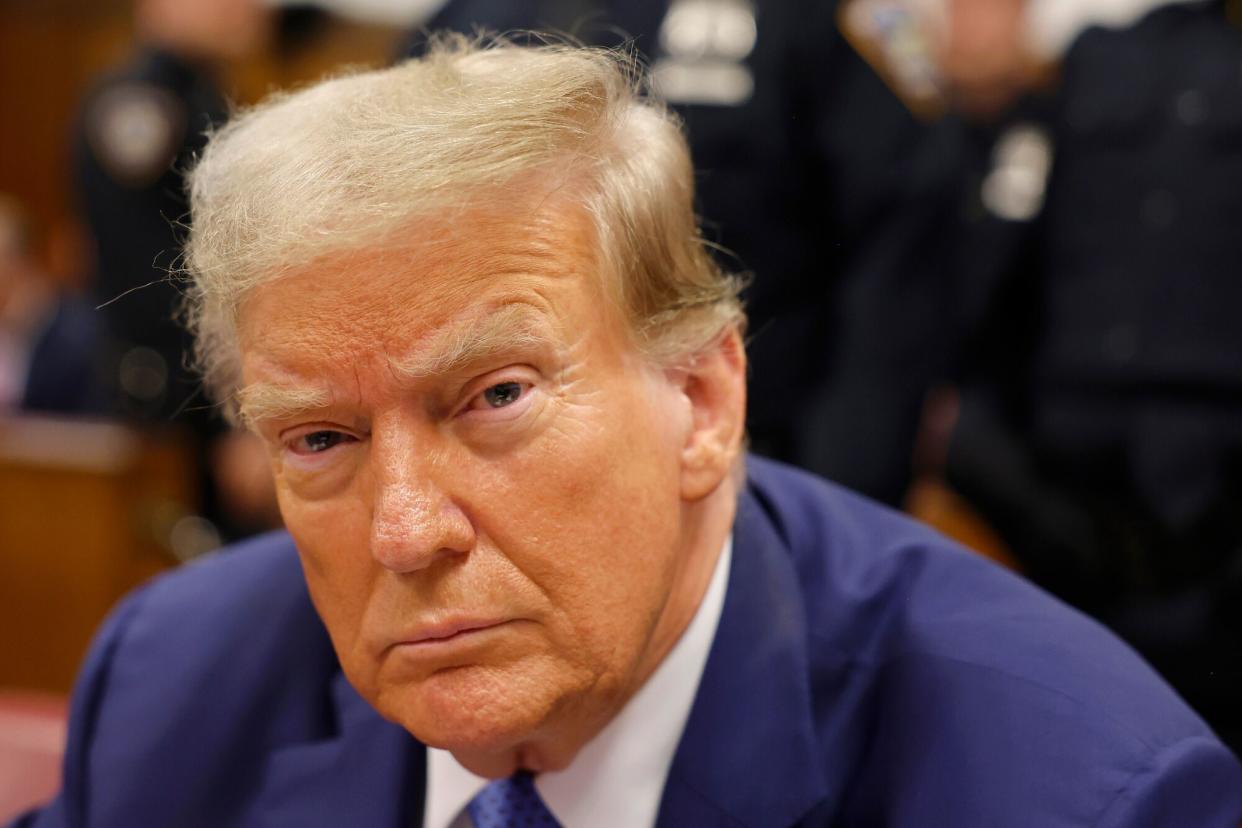Trump Plan to Exempt Tips From Taxes Could Cost $250 Billion

- Oops!Something went wrong.Please try again later.
(Bloomberg) -- Donald Trump’s new proposal to exempt tips from taxation would add between $150 billion to $250 billion to the federal budget deficit over 10 years, a budget watchdog group forecast on Monday.
Most Read from Bloomberg
What to Know About the Deadly Flesh-Eating Bacteria Spreading in Japan
Stocks Struggle to Make Headway on Economic Signs: Markets Wrap
Citi Pitches Money-Moving ‘Crown Jewel’ as Central to Revamp
Flesh-Eating Bacteria That Can Kill in Two Days Spreads in Japan
These Are the World’s Most Expensive Cities for Expats in 2024
The cost estimate from the nonpartisan Committee for a Responsible Federal Budget suggests that the plan’s deficit impact would be comparable and potentially much larger than the $172 billion projected revenue loss from extending the 2017 tax cuts for small businesses and other so-called pass-through companies due to expire next year.
The tax exemption for tips is Trump’s latest effort to court younger voters. He announced it at a campaign rally in Nevada, a crucial presidential battleground which has the highest proportion of food service and accommodation workers in the country, industries where employees have historically relied on tips.
“We need to spread the word so that every time you leave a tip for the next five months, you put on the receipt, ‘vote for Trump because there’s no tax on tips,’” the former president said at an event in Florida on Friday night that celebrated his 78th birthday.
The CRFB warned the cost could be much higher if employers and employees responded to the tax exemption by shifting more overall compensation from wages to tips.
The group estimated that with a 10% shift toward tips the cost could rise to $275 billion and with a doubling of tips offset by lower wages, the lost revenue to the federal government could soar to $500 billion.
The price tag creates a fiscal obstacle to enactment of Trump’s proposal. The presumptive Republican presidential nominee is already proposing extending individual and estate tax cuts enacted in 2017, which the Congressional Budget Office projects would cost $4.6 trillion over 10 years.
Brian Hughes, a spokesman for the Trump campaign, defended the proposal in a written statement saying “tip earners work for every dollar and shouldn’t be expected to fund DC’s bloated spending for illegal migrant social programs or out of control bureaucracy.”
Trump on Thursday floated to top business executives the idea of lowering the 21% corporate tax rate to 20%. He told House Republicans the same day he would like to offset revenue losses from tax cuts by raising tariffs on imported goods.
Republicans are divided on whether such tax cuts should be offset by spending cuts or other sources of revenue. The 2017 tax cuts were not paid fully paid for and the CBO estimates they added $1.5 trillion to budget deficits.
House Speaker Mike Johnson and other key Republicans are advocating making large cuts to federal spending early on in a new Trump administration in order to put a priority of slowing the growth of the US national debt.
“There is going to be a rigorous debate next year,” said House Budget Committee Chairman Jodey Arrington, a Texas Republican. “With the size of the debt and the level of interest rates, we are in a much different environment than 2017.”
--With assistance from Hadriana Lowenkron and Stephanie Lai.
(Updates with Trump comment in the eight paragraph)
Most Read from Bloomberg Businessweek
Google DeepMind Shifts From Research Lab to AI Product Factory
Coke—and Dozens of Others—Pledged to Quit Russia. They’re Still There
Trump’s Planned Tariffs Would Tax US Households, Economists Warn
©2024 Bloomberg L.P.


